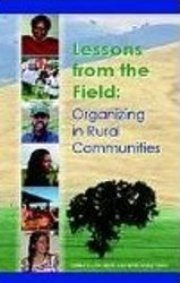AGRICULTURAL CRISIS IN FRANCE: TOWARDS AN ECOLOGICAL AND SOCIAL SETBACK ORCHESTRATED BY THE AGRIBUSINESS?
Written by Marielle Benchehboune
The first measures announced by the government in an attempt to respond to farmers' anger target ecology, as demanded by the FNSEA, the main farmers' union in the hands of agribusiness lobbies. But they fail to address the issue of fair remuneration.
Thirteen. That's the number of times new French Prime Minister Gabriel Attal used the word "standards" during his general policy speech on January 30. The question is, what are these "standards" to be combated? Are we talking about challenging the ban on a carcinogenic pesticide, or the work regulations for seasonal workers, or simplifying certain administrative procedures that are far too complex?
In his speech, he made no mention of the enormous margins of supermarkets and the agri-food industry. Nor was there any mention of the soaring production costs on farms, with no increase in the remuneration paid to farmers, while consumers see their receipts increase. The first measures announced by the government focus almost exclusively on environmental standards.
Gabriel Attal drew his inspiration from a synthesis of the demands of the FNSEA. In addition to the "reduction of standards", they are calling for the "acceleration of water storage projects"; the "cleaning up of watercourses" that destroys flora and fauna; the refusal to delimit "wetlands" - despite the fact that they enable this type of area, essential to biodiversity and the water cycle, to be protected; a "derogation on the 4% set-aside" - set-aside allows the land to rest; the "limitation of appeals and investigation times" for projects - understand agro-industrial projects; the placement of agents of the French Biodiversity Office "under the authority of the Prefect"; or the "complete and immediate rejection of all over-transpositions" - if, for example, France decided to do better than Europe in terms of pesticide bans. .. All these demands were taken up by the Prime Minister.
WEAKENING STANDARDS, EVEN THOSE THAT PROTECT
Despite government announcements, the roadblocks put in place by farmers are still there. "Calling for an end to all the environmental and social standards that govern us is the easy way out", says Nicolas Clair, spokesman for the Confédération Paysanne de la Loire. It's not environmental standards or our social rights that we need to weaken. What we need is protection against unfair competition.”
"Standards, are there to protect consumer health, to protect the environment and to protect workers. For us, it would be inconceivable for this crisis to result in a setback in any of these areas, be it health, the environment or worker protection," explains Dominique Dubreuil, president of the Morbihan organic farmers' group. We're not going to get out of this global crisis by adding precariousness to precariousness or pollution to pollution," he adds.
A STEP BACKWARDS IN THE FIGHT AGAINST PESTICIDES
However, if the government decides to follow the FNSEA's demands to the end, it will mean a step backwards in the fight against pesticides. FNSEA representatives are calling for the "wholesale rejection of pesticide-free zones" (ZNT). These strips, several meters wide, are supposed to separate pesticide-sprayed crops from populated areas. The FNSEA is also calling for a "moratorium on bans" on pesticides and a "rejection of Ecophyto", the plan to reduce the use of toxic and carcinogenic products in the countryside. Yet farmers are among the main victims of pesticides. Riverains ensemble, a national federation of unions of rural dwellers affected by the misuse of pesticides, affiliated to ACORN International, has published an opinion piece denouncing these announcements as destructive to health and the environment.
MAKING AGRICULTURE MORE ECOLOGICAL AND SOCIAL
"What we need is to tackle the roots of the problem by offering more social and economic protection to farmers," writes the farmers' union Confédération Paysanne.
Negotiations on prices paid to farms have come up against blockages from manufacturers and supermarkets. The result of this government inaction: the agri-food industry has made historic profit margins in recent months, while farmers' incomes have not improved.
The Confédération Paysanne is calling for guaranteed prices for agricultural products, minimum entry prices to limit unfair competition, economic support for the agro-ecological transition to help farmers change their practices, priority for new farmers over larger ones, and a halt to the artificialization of farmland.
In the face of growing agricultural anger, Marc Fesneau, the French Minister of Agriculture, has announced the postponement of the agriculture bill . Can we hope for a law to make agriculture more ecological and social? A law that provides for public subsidies - over 9 billion euros a year are paid by the European Union to the French agricultural sector under the Common Agricultural Policy - to be granted in future on the basis of the number of jobs created, rather than the number of hectares owned?
Marielle Benchehboune is based in Lyon, France, and directs ReAct Transnational, an ACORN affiliate working to support workers and communities in campaigns globally and in France.










